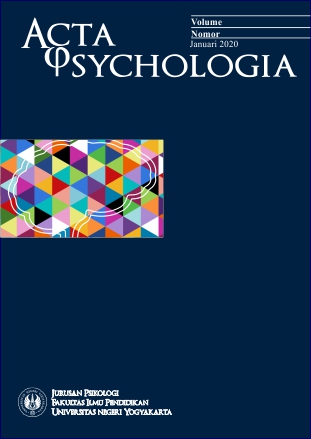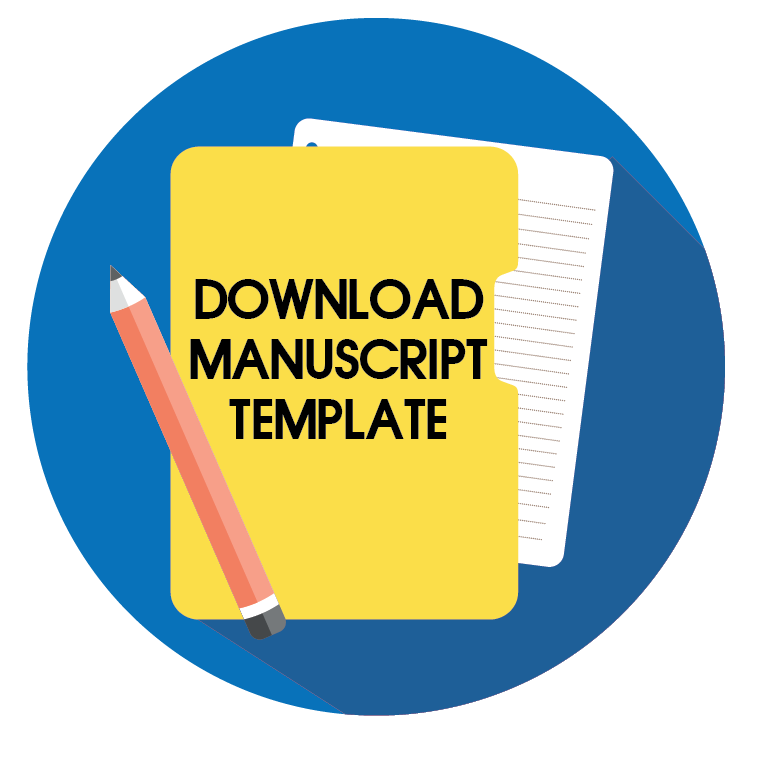Hubungan Regulasi Diri dengan Prokrastinasi Akademik pada Mahasiswa yang Sedang Menyusun Skripsi
DOI:
https://doi.org/10.21831/ap.v4i1.47654Keywords:
Self-regulation, academic procrastination, and student in making skripsi.Abstract
Penelitian ini bertujuan untuk mengkaji hubungan antara regulasi diri dengan prokrastinasi akademik pada mahasiswa yang sedang menyusun skripsi. Penelitian ini menggunakan pendekatan kuantitatif dengan metode ex post facto. Subjek dari penelitian ini berjumlah 264 mahasiswa Angkatan 2017 Fakultas Ilmu Pendidikan (FIP) Universitas Negeri Yogyakarta. Metode pengambilan data menggunakan kuesioner online yang disebar melalui media sosial. Validitas skala penelitian menggunakan validitas isi yang dilakukan dengan bantuan expert judgement. Reliabilitas skala penelitian ini berupa reliabilitas Alpha Cronbach dengan reliabilitas skala regulasi diri 0,89 dan skala prokrastinasi akademik 0,95. Hasil penelitian menunjukkan terdapat hubungan negatif antara regulasi diri dengan prokrastinasi akademik pada mahasiswa yang sedang menyusun skripsi. Mahasiswa yang memiliki regulasi diri yang tinggi cenderung melakukan prokrastinasi akademik secara rendah ketika menyusun skripsi, begitu juga sebaliknya
References
Ardina, P. R. A., & Wulan, D. K. (2016). Pengaruh regulasi diri terhadap prokrastinasi akademik pada siswa SMA. Perspektif Ilmu Pendidikan, 30(2), 67-76.
Azwar, S. (2016). Penyusunan skala Psikologi. Yogyakarta: Pustaka Pelajar.
Bandura. A. (1991). Social cognitive theory of self-regulation. Organizational Behavior and Human Decision Processes, 50, 248-287.
Burka, J. B., & Yuen, L. M. (2008). Procrastination: Why you do it, What to do about it now. Cambridge: Da Capo Press.
Ferrari, J. R., Jonhson, J. L., & McCown, W. G. (1995). Procrastination and task avoidance: Theory, research, and treatment. New York: Plenum Press.
Fischer, C. (1999). Read this paper later: Procrastination with time-inconsistent preference. New York: Resource for The Future.
Mayasari, M. D., Dewi, M., & Weni, E. W. (2010). Hubungan antara persepsi mahasiswa terhadap metode pengajaran dosen dengan kecenderungan prokrastinasi akademik pada mahasiswa Fakultas Psikologi Universitas Hang Tuah Surabaya. Jurnal Insan, 12(2) 95-103.
Neal, D., & Carey, K. (2005). A follow-up psychometric analysis of the self- regulation questionnaire. Psychology of Addictive Behaviors, 19(4), 414–422.
Pramedyasari, D. (2012). Prokrastinasi dan task aversiveness tugas makalah pada mahasiswa Fakultas Psikologi Universitas Surabaya. Journal Calyptra, 1(1), 1-16.
Santrock, J. W. (Ed). (2005). Educational Psychology. New York, Boston: McGraw-Hill.
Setiawati, F. A. (2017). Statistika terapan untuk penelitian Pendidikan dan Sosial. Yogyakarta: Parama Publishing.
Slovin, M. J. (1960). Sampling. New York: Simon and Schuster Inc.
Sugiyono. (2014). Metode penelitian pendidikan (Pendekatan kuantitatif, kualitatif, dan R & D). Bandung: Alfabeta.
Watson, L.A. Clark, A. Tellegen. (1989). Development and validation of brief measures of positive and negative affect: the PANAS scales. Journal of Personality and Social Psychology, 54(6), 1063-1070.
Wicaksana, B. (2014). Hubungan antara regulasi diri dengan prokratinasi tugas akhir skripsi pada mahasiswa Prodi BK UNY. (Skripsi, Universitas Negeri Yogyakarta) dikutip dari https://eprints.uny.ac.id/13345/.
Woolfolk, A. (2009). Educational Psychology active learning edition (Penerjemah: Helly Prajitno Soetjipto). Boston: Pearson Education, Inc.
You, J. W. (2015). Examining the effect of academic procrastination on achievement using lms data in e- learning. Journal of Educational Technology & Society, 18 (3), 64–74.
Zimmerman, B. J. (1989). A social cognitive view of self-regulated academic learning. Journal of Educational Psychology, 81(3), 329–339.
Zimmerman, B. J. (Ed). (2000). Attaining self-regulation. San Diego: Academic Press
Downloads
Published
How to Cite
Issue
Section
License
Acta Psychologia allows readers to read, download, copy, distribute, print, search, or link to its articles' full texts and allows readers to use them for any other lawful purpose. The journal allows the author(s) to hold the copyright without restrictions. Finally, the journal allows the author(s) to retain publishing rights without restrictions
- Authors are allowed to archive their submitted article in an open access repository
- Authors are allowed to archive the final published article in an open access repository with an acknowledgment of its initial publication in this journal

This work is licensed under a Creative Commons Attribution-ShareAlike 4.0 Generic License.










